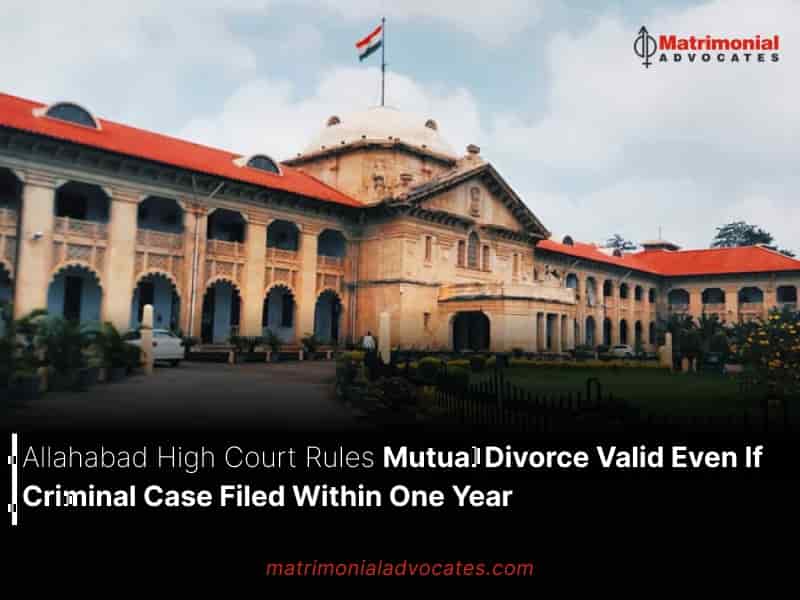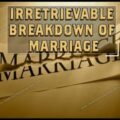
The Allahabad High Court has held that when one spouse files a criminal case against the other, and both parties later apply for a mutual consent divorce, the court is obligated to grant the divorce by invoking the proviso to Section 14(1) of the Hindu Marriage Act, 1955.
While Section 13-B of the Act permits divorce by mutual consent, Section 14 generally bars filing a divorce petition within one year of marriage. However, the proviso to Section 14(1) allows the court to entertain such petitions earlier if the petitioner is subjected to exceptional hardship or if the respondent has committed extraordinary misconduct.
The bench of Justice Vivek Chaudhary and Justice Brij Raj Singh held
“The proviso to Section 14 (1) of the Act, 1955 is an exception to the necessity for expiration of a period of one year since the date of marriage to enable a party to file a petition for divorce. Once an application under Section 14 (1) of the Act, 1955 is filed before the court, certainly the court has to see whether there is exceptional hardship to the petitioner or exceptional depravity on the part of the respondent.”
The parties were married on August 5, 2024, with their marriage officially registered on August 12, 2024. They solemnized their marriage again following Hindu rites and customs on September 3, 2024. After conflicts arose, the husband filed a complaint on the IGRS portal alleging that the wife threatened to file a false FIR. In response, the wife lodged an FIR under Sections 115(2), 352, and 351(3) of the Bharatiya Nyaya Sanhita, 2023.
Subsequently, she registered another FIR invoking Sections 376 and 506 of the IPC, along with Sections 3 and 4 of the POCSO Act. Amid these ongoing criminal cases, the parties jointly filed for divorce by mutual consent under Section 13-B of the Hindu Marriage Act, accompanied by an application under Section 14 seeking exemption from the mandatory one-year waiting period before filing for mutual divorce.
The Principal Judge of the Family Court in Ambedkar Nagar dismissed the application, leading the parties to appeal to the High Court.
In Mandeep Kaur Bajwa Vs. Chetanjeet Singh Randhawa, the Punjab and Haryana High Court held that
“If an application for leave under the proviso to Section 14(1) of the Act is presented by the parties, what the Court is expected to look into is whether there is exceptional hardship to the petitioner or exceptional depravity on the part of the respondent. If the Court is satisfied about the existence of the ingredients of the proviso to Section 14(1) of the Act, leave would be granted to present the petition for divorce even before the expiry of one year since the date of marriage.”
The Court ruled that leave could be revoked and the petition dismissed if, during the hearing, no exceptional circumstances were found. In this instance, the wife had left for Canada only three months after the marriage, abandoning her husband. The Court waived the one-year waiting period and allowed the appeal.
In Manish Sirohi vs. Smt. Meenakshi, a different division bench of the Allahabad High Court granted a divorce, observing that when no marital relationship has formed after marriage and both parties wish to part ways, they should be permitted to separate and move forward with their lives. The Court stressed that prolonging litigation would only lead to unnecessary mental and physical suffering for both parties. The bench, led by Justice Chaudhary, held that
“In the present case, it is borne out of the record that criminal cases have been filed by the respondent and there is no chance that marriage will subsist. Therefore, the proviso to Section 14(1) of the Act, 1955 is to be invoked, so that the parties may get divorce and lead their peaceful life.”
Accordingly, the Family Court’s order was set aside, and it was directed that the Family Court may allow the parties to file a motion under Section 13-B(2) after six months have elapsed from March 26, 2025.





